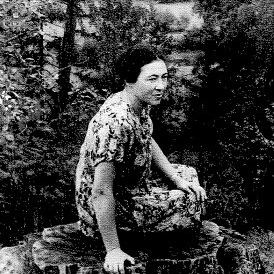
News

Dr Boudnitski: a war heroine in our midst
JORDAN MOSHE
Boudnitski is 94, and few of those around her in the home for the elderly have a real understanding of who this woman really is. Other than her medals, she has been repeatedly recognised as a top-rate doctor, professor, radiology consultant, and teacher.
At the outset of her discussion with the SA Jewish Report, she stresses that her advanced age has left her quite delicate. “I’m not really well. I have weakness. I remember plenty tzorres (troubles). But I drink the tablets the doctors give me, and I can still feel my heart and my brain. That helps me.”
In spite of the challenges ageing has brought, Boudnitski’s story speaks of a woman who is larger than life.
Born in the Ukraine in 1923, Boudnitski recalls a childhood spent swimming in the Dnieper and Desner rivers, of helping her mother keep house, making borscht, and playing soccer in the street with local boys. Although she learnt about Judaism from her parents, none of them dared to disclose to anyone that they were Jewish.
While studying medicine, Boudnitski volunteered to be one of 12 students that Moscow University would send to work in hospitals as members of the Red Army. She says, “When they told us they needed students to work, I put my hand up. When I came to my parents and told them, they argued with me. They told me, ‘You have a brain! Why did you choose to do this?’ But I couldn’t say I wouldn’t do it. I had to.”
In 1941, her enthusiasm led her to a hospital in Alma Ata, Kazakhstan, where she helped treat wounded soldiers, many of whom could not be rehabilitated. “There were about 75 of them,” she says. “I worked with doctors and other students to look after them. It was hard, and I worked even at night.”
She served in the Red Army for five years, and recalls this time with little fondness. Hardly surprising, considering that Germany broke its pact with Russia, and launched air assaults against the country. “The time in the army was not good,” she says. “So many people were hurt, sick, and dying. There was sometimes nothing we could do for them. So many suffered. So many.”
Still, she remained in Kazakhstan until the end of the war, studying in the morning and working in the afternoon. Towards the war’s end, Boudnitski contracted malaria, and was advised to return to Moscow. “I went back to my parents, and I finished my studies in four months.” She qualified as a physician the year the war ended, and shortly thereafter as a radiologist.
Boudnitski threw herself into aiding her countrymen who had been affected by the Nazi invasion of Russia, and the famine which gripped the country following the war. Together with her medical colleagues, she administered medical treatment to war survivors. She witnessed the horrific scenes of newly-liberated death camps as the Russian forces rooted out remaining Nazi forces, all the while saving the lives of sick and malnourished survivors.
Boudnitski then met and married her husband, Joseph, an eminent scientist and academic who was involved in the development of classified technology and engineering projects, including the Kosmos rocket. They had two children, and remained devoted to their respective professions for decades to follow. Boudnitski practised as a medical doctor, radiologist, and professor of medicine until she was pensioned at the age of 60. Her husband continued his work until the age of 71.
It was at this point that their son, Vladimir, urged his parents to emigrate to South Africa, a country to which he had been sent through work for Microsoft Los Angeles. “He said that Johannesburg was very nice,” says Boudnitski, “and that we should come here because it is beautiful and better than the difficult life in Russia.” She and her husband submitted applications for the necessary visas, and though hers was approved within a month, it took five years for her husband to receive approval.
The couple arrived in South Africa in the late 1990s. Although neither of them spoke a word of English, they strove to make the most of their new lives.
Because she was not English-proficient, Boudnitski was unable to obtain a licence to practice medicine. Yet, no matter what she faced, Boudnitski was determined not to return to Russia, a country for which both she and her son felt intense dislike. “Russia, I don’t miss,” she says. “It’s very hard there. The tzorres there is too much, and there was always hunger, poverty, and sickness. That’s what Russia was to me.”
After her husband died of a heart attack in 1993, a close friend and fellow countrywoman, Bronia Talesnick, suggested that she move into Sandringham Gardens. It was there that she found an opportunity to put her medical training to use, checking the blood pressure of staff and fellow residents regularly and voluntarily.
Despite her age, Boudnitski remains as active as possible, and continues to be recognised for her lifetime of achievements.
“The Russian ambassador has met me many times,” she says. “The Russian government has given me medals for my medical work, and for serving in the war.” She has attended several local memorials and Russian events, and is one of only a handful of people who is still around to be part of them.
Boudnitski will be turning 95 next month, but is determined to prevent too many people from finding this out. “It’s a secret. I keep it quiet. I don’t want anything, not a party. Every year the Russian embassy fetches me, and has a party for me. I don’t want it.”
“I am a doctor,” she concludes. “But now I‘m almost 95, and I feel it. I use a walker, and my life is difficult. But I am a doctor, and I share my story. It’s who I am.”




